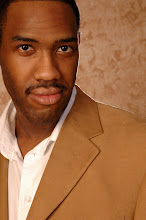As an evangelical Lent is one of the only seasons of the liturgical year that holds particular meaning for me. Lent is a gift to a frenzied world: an opportunity to stop and look within, a chance for every believer to ask, “What does this Christian faith really mean to me? What am I willing to give for it? Many progressive Christians seem to think that sin no longer exists, that we can live our lives in whatever fashion we choose and a warm and fuzzy Jesus will never require more of us than we are willing to give. Yet Lent is a season that reminds us that indeed sin is real and costly. It is costly to God, costly to others and costly to ourselves. Jesus’ agonizing death on the cross is proof of this. And we are not following a Jesus who has no requirements of us. What is this crucified Savior asking of me? What do I owe the Lamb of God who takes away the sins of the world? These are the questions I intentionally choose to wrestle with during the season of Lent.
So many of us have come from traditions that have beat us over the head with sin over and over again. You couldn’t walk into church without feeling guilty and ashamed. I grew up in an evangelical church and let me tell you the Catholics aren’t the only ones who know how to use shame! Didn’t make it to Wednesday Night Bible Study? Sin! Forgot to say grace before lunch? Sin! Didn’t pay your tithes this week? When Jesus comes back during the Rapture you’re going to be left behind! And though the concept of sin has been terribly abused, the reality of sin does not disappear. The acknowledgement of sin is not meant to be used as a tool to control, manipulate and shame others, but to provide an entrance for grace. The acknowledgement of sin, the tendency in all of us to do harm to each other and ourselves creates a humility, a brokenness that leads us to discover the God who walks with us in broken places. This is what comes to mind when I think of Lent: a Savior who came to earth to walk with us in our broken places, to save us from all the ways sin tries to rob us from truly living.
During the season of Lent what I find more important than giving something up although I will do that as well, is spending extra time in daily prayer examining myself in the sight of God. It’s so easy to see the sin in others but can I see the sin lurking within my own heart? What are the thoughts, attitudes and dispositions in me that separate me from God, from others and even my own soul? “Search me O God and know my heart; test me and know my anxious thoughts. See if there is any offensive way in me, and lead me in the way everlasting” (Psalm 139:23-24). This is the cry of my heart and the prayer I will pray over and over again during Lent. Jesus live out your resurrected life in me. Cleanse me, wash me, purge me. Make me aware of the things in me that are preventing You from dwelling in me more fully.
Whenever I approach God with this kind of humility God shows up with his presence and answers my prayers. My eyes are opened and I begin to be aware of ways in which I fail God and others and myself, and the result is not shame or condemnation. The brokenness revealed by the awareness of sin creates an entrance for grace. “But where sin increased, grace abounded all the more,” (Romans 5:20). The brokenness creates more space in our hearts for God to dwell. In the time I spend singing, praying and sitting quietly before God I feel washed over by waves of grace. I feel that I am being carried by the Savior, the Lamb of God who has taken away my sin, is taking way my sin now and will continue to take away my sin in the future. My response is love. I fall in love all over again with this God, this Savior as gentle as a lamb, who walks with me in broken places and I commit myself again to following Jesus for the rest of my life. Whatever it takes, whatever it may cost me my soul sings, “Take my life and let it be consecrated Lord to Thee”. I will die to my own will and agenda in order to allow Jesus to live out his resurrected life in me. Lent’s greatest gift is the reminder that I am completely dependent upon this God and it is this dependence paradoxically that liberates my soul and makes a full authentic life possible. And this whole process begins with the acknowledgement of my own sin.
“It is in descending again into the darkness and silence of the womb of God do we reemerge into a world of light ready to begin our journey afresh.”
